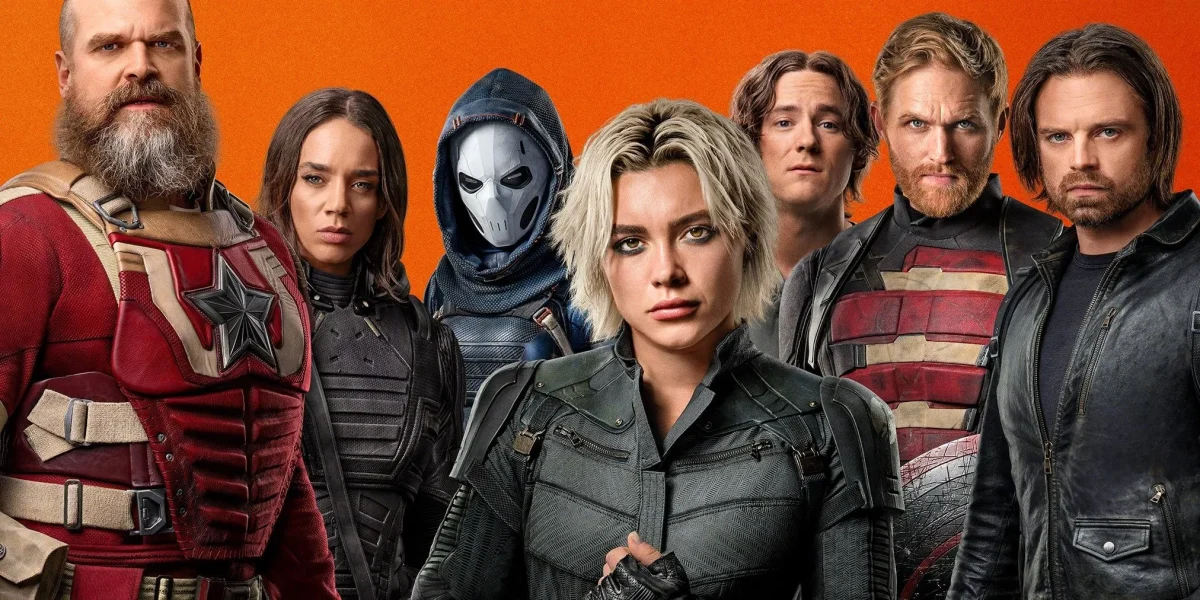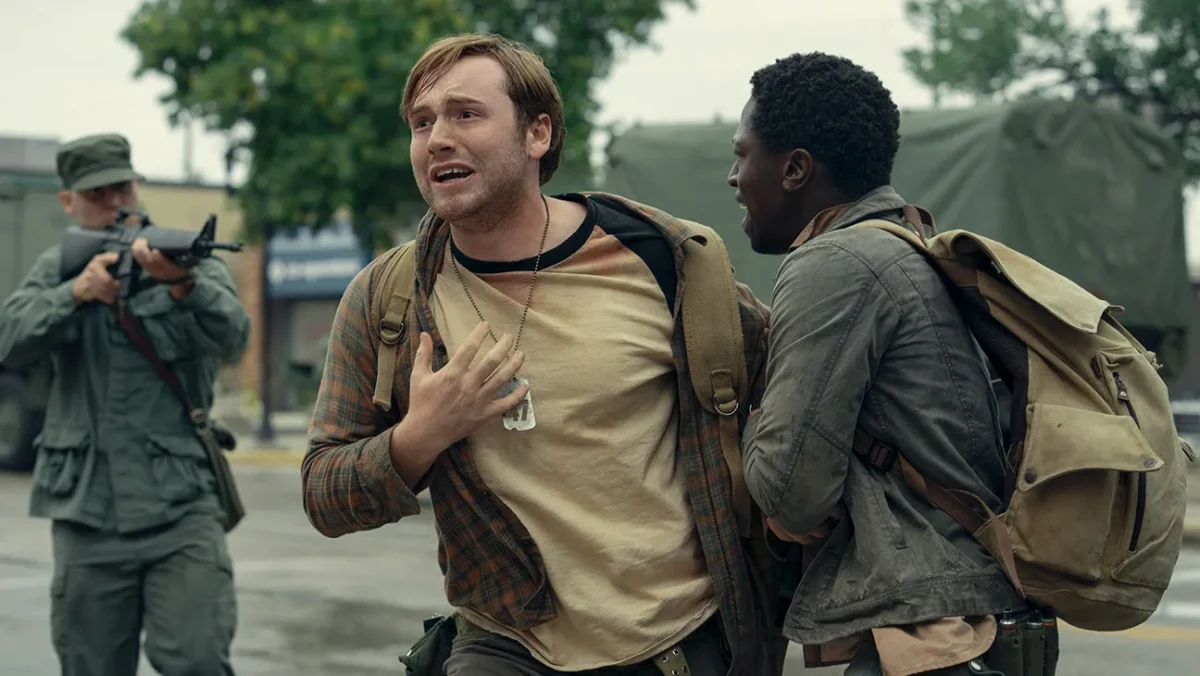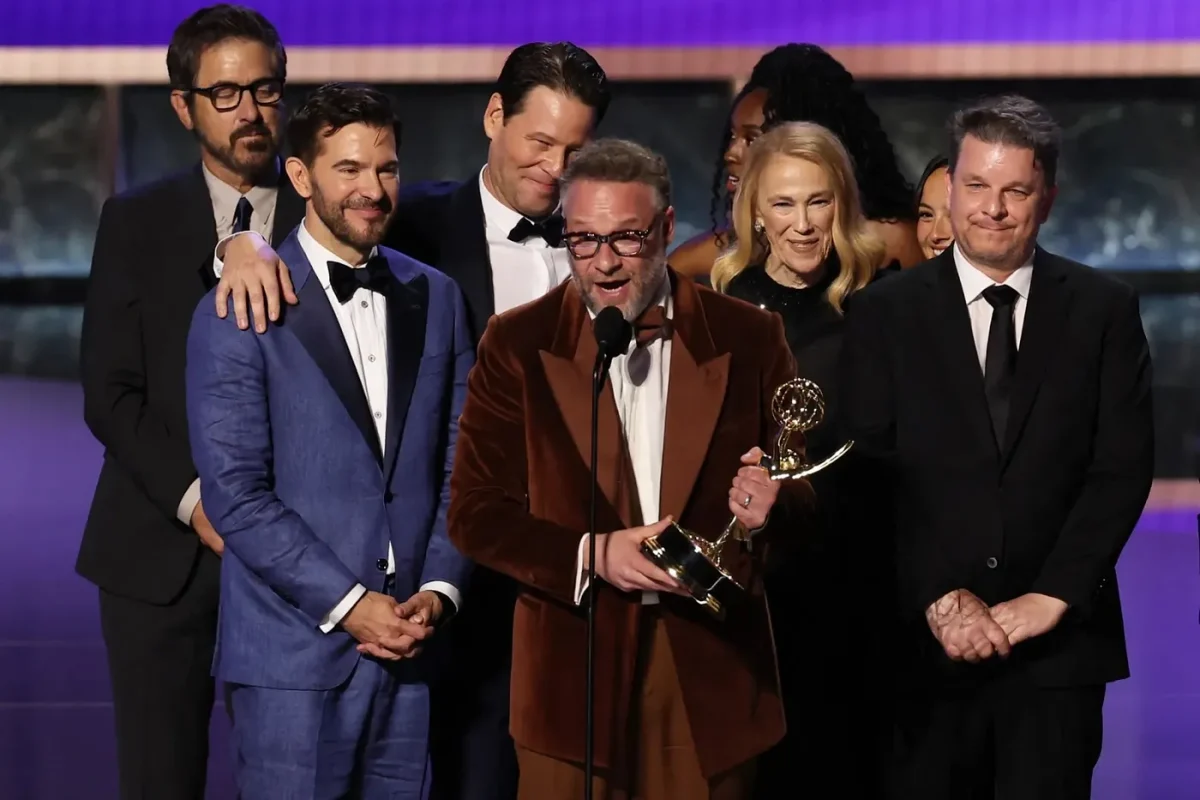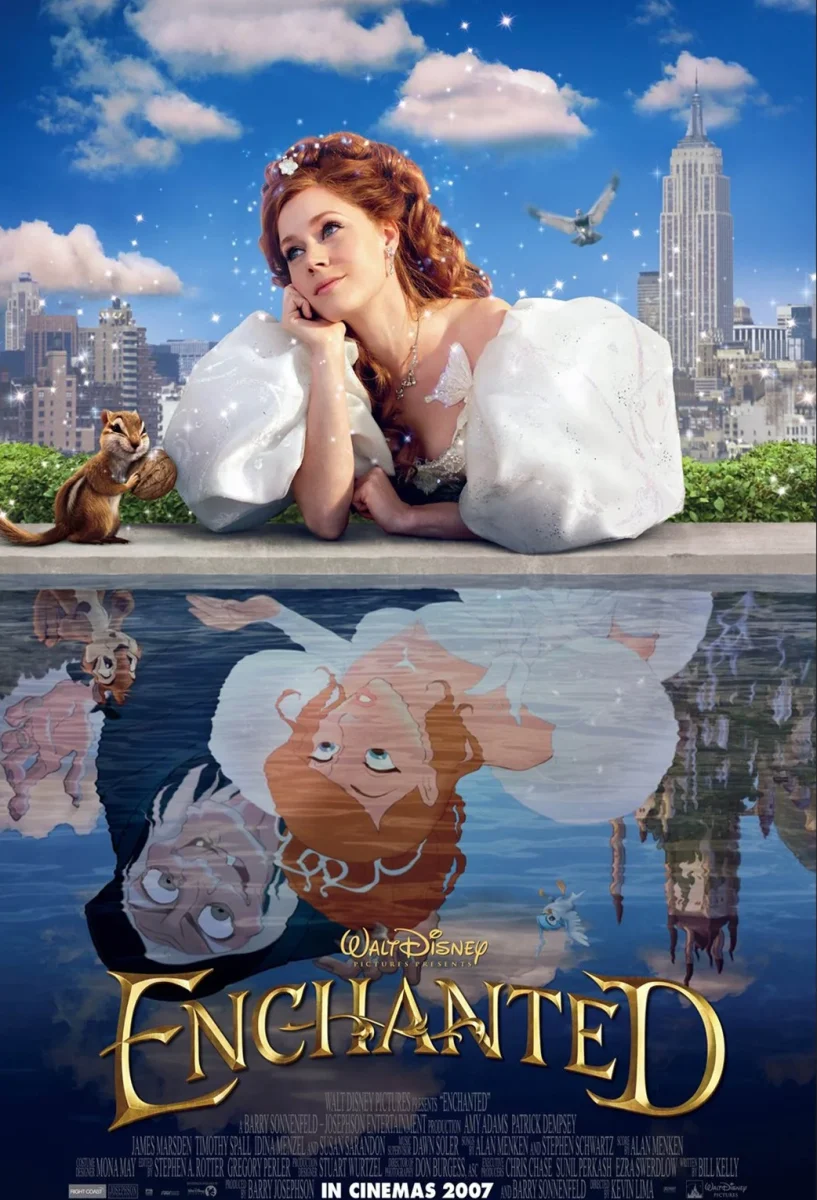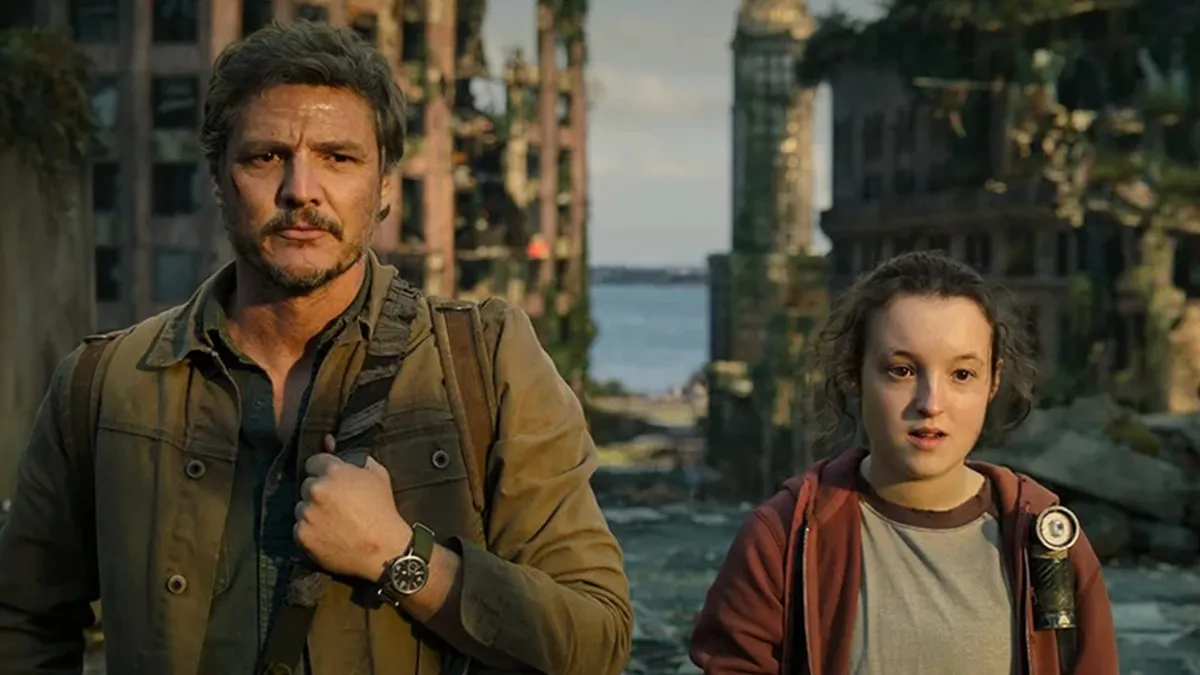“Thunderbolts*,” strangely enough, feels like a statement about Marvel itself. It’s an odd thing to say, as any self-referential criticism would generally be reserved for a snarky comment from Deadpool, but this time, it seems that it’s from the heart. After a dismal response to February’s “Captain America: Brave New World,” Marvel has entered a rush to the finish line with one more movie, July’s “The Fantastic Four: First Steps,” to wrap up this era of the Marvel Cinematic Universe (MCU) with a mighty “Avengers” duology. But just like the characters in the movie, “Thunderbolts*” seems to have been lost in the middle.
Directed by Jake Schreier, “Thunderbolts*” follows the MCU’s rough-around-the-edges antiheroes—the lowly, lonely rejects amongst Marvel’s menagerie of gods and magicians. Centrally, the film focuses on Florence Pugh’s Yelena Belova, who, after a mission goes awry, joins up with fellow MCU misfits John Walker (Wyatt Russell), Ghost (Hannah John-Kamen), Red Guardian (David Harbour) and Bucky Barnes (Sebastian Stan) as they team up to take on Julia Louis-Dreyfus’ Valentina Allegra de Fontaine. They are joined by MCU freshmen Geraldine Viswanathan as de Fontaine’s assistant Mel and Lewis Pullman as the mysterious Bob.
If there’s one thing that “Thunderbolts*” gets right, it’s the themes that the film chose to tackle. What “Captain America” got wrong earlier this year was choosing to forget about the movie’s messaging in order to focus on action. To the film’s merits, “Thunderbolts*, smartly decides to forgo this, choosing to provide both the notable Marvel action and the dark themes that the film is not afraid to broach. The film is not afraid to talk about topics such as depression (and lightly touches on substance abuse), and how it affects our everyday lives. The only issue is that it chooses not to delve too deep, leaving all the talk of it to the final act, and while it is done well, there could have been so much more expansion earlier on, helping the film feel more cohesive as a whole.
Pugh’s Yelena and Pullman’s Bob work especially well as a pairing, as the characters not only mesh well thematically, but Pugh and Pullman pull their weight in spades. Instead of playing it over the top, making the depressed characters brooding and moody, they instead elucidate the emptiness of their lives, with dry, humorless deliveries that feel right in tune with the script’s wry spirit. Harbour, shockingly, arrives as the film’s secret weapon, providing both the humor and the heart of the movie with ease. There’s a stand-out scene in the film between Yelena and Harbour’s Red Guardian involving an explosion of feelings, with Pugh able to showcase her extraordinary talent in an emotional tour-de-force, as Harbor performs as a loving fatherly rock, able to ground Yelena. It’s the most impactful scene a Marvel film has had in years. However, while those character beats are great, the others don’t get as much else, feeling like add-ons in a movie that’s supposed to be about them. There are slight hints to their pasts in the film, but expansion was necessary in order to make their characters feel more well-rounded.
The story, while better than some of Marvel’s previous outings, still feels as if it could have been fine-tuned a bit more. Written by Marvel mainstay Eric Pearson and “The Bear” writer Joanna Calo, the film only gets stronger as the momentum picks up. The first two acts feel like your standard Marvel fare, with (admittedly) well-shot action and inklings of a theme that Marvel always seems too afraid to touch. But that’s where the similarities end. The film’s final act is one of Marvel’s best, with a creative and emotional finale that improves the film almost exponentially. The problem is that this is not most of the movie. The first two acts, held up by fun performances, feel meandering and pointless, with a vague motivation and goal. While this can be seen as a creative choice, considering the movie’s themes, it didn’t feel intentional, and there could’ve been a stronger hook to the story.
But most of all, “Thunderbolts*” feels like Marvel is making a statement about itself. The heroes of this movie are not bright, cheery and traditionally heroic. They are jaded, world-weary and depressed. They shout snarky jabs at each other, they bicker and fight and they don’t work together all that well. It feels like a metaphor for Marvel at the moment, with creative clashes and growing distaste for the formula creating a dreadful void in the soul of the House of Ideas. “Thunderbolts*” could be the first of a creative revival for Marvel, but with their biggest movies yet on the horizon, they must tread with care, for if they do not, The Void may have yet another victim on its hands.
RATING: 3.5/5

